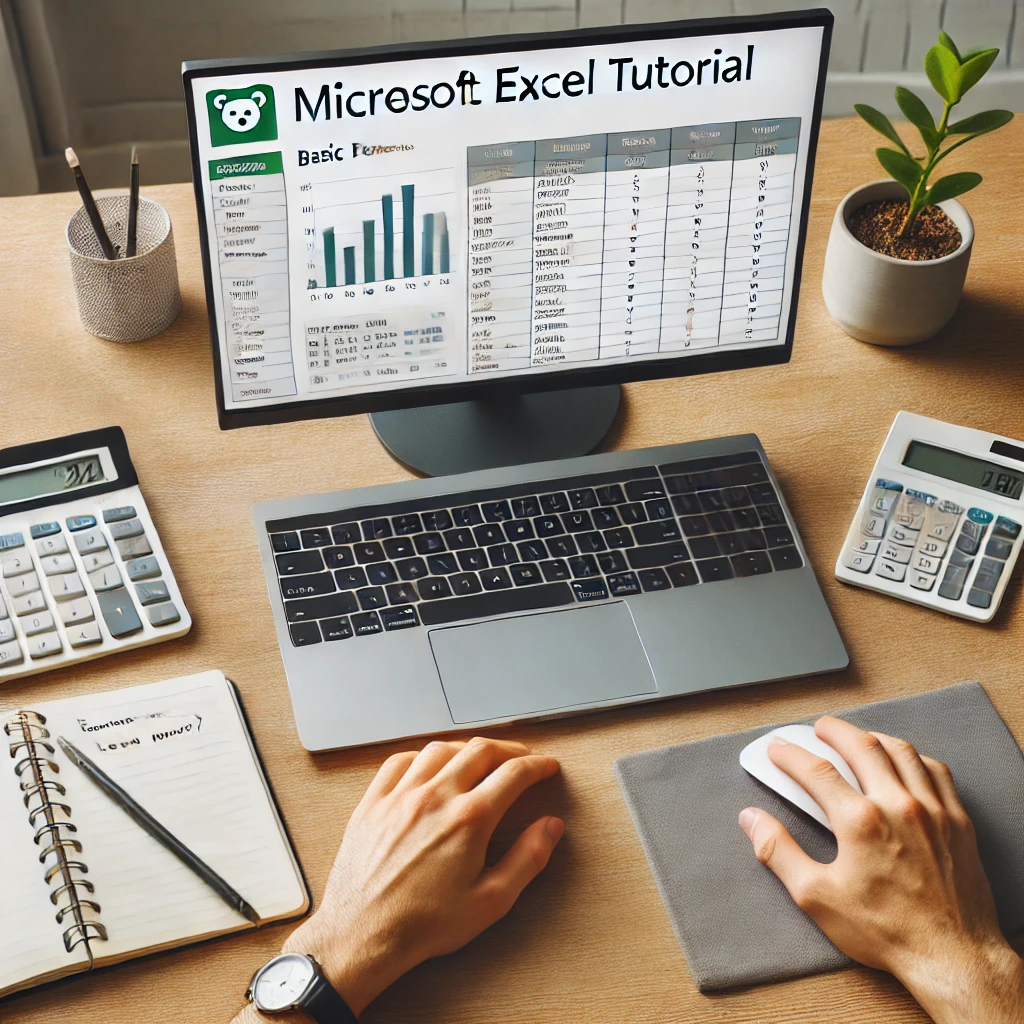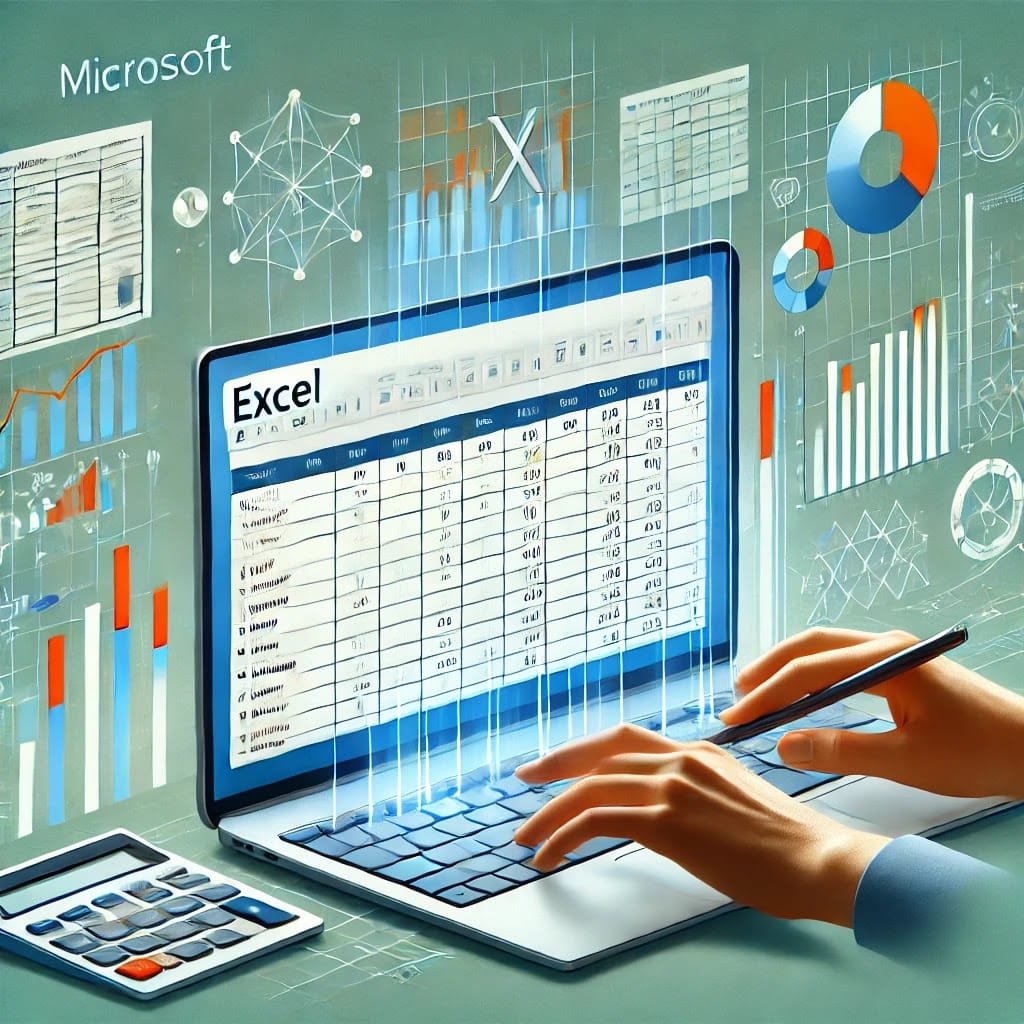Microsoft Excel is one of the most powerful and widely used spreadsheet tools in the world. Whether you’re a student, a professional, or a business owner, learning the basics of Excel can boost productivity and help you manage data more efficiently.
In this beginner’s guide, we’ll cover essential Excel features, including formatting, formulas, shortcuts, and tips to help you get started quickly.
Let’s dive in! 🚀
📌 What is Microsoft Excel?
Microsoft Excel is a spreadsheet software that allows users to store, organize, and analyze data using tables, charts, and formulas. It is widely used for:
✔ Data entry & management
✔ Calculations & formulas
✔ Creating charts & graphs
✔ Financial analysis & budgeting
✔ Project planning & tracking
Excel is a must-have tool for businesses, students, accountants, marketers, and anyone who works with data.
🛠 Getting Started with Excel: Interface & Basics
1️⃣ Understanding the Excel Interface
When you open Excel, you’ll see the Excel Ribbon, which contains various tabs and tools:
🔹 Home Tab – Formatting, fonts, colors, alignment
🔹 Insert Tab – Charts, tables, shapes, and images
🔹 Formulas Tab – Functions and calculations
🔹 Data Tab – Sorting, filtering, and data tools
🔹 Review Tab – Spell check, comments, and track changes
💡 Tip: Get familiar with the Quick Access Toolbar (top left) to add frequently used commands.
2️⃣ Excel Workbook & Worksheets
📂 Workbook: An Excel file containing multiple sheets
📄 Worksheet: A single spreadsheet within a workbook
📊 Cells: The small boxes where you enter data (identified by letters and numbers, e.g., A1, B2)
🔹 To create a new sheet → Click the ➕ (Plus icon) at the bottom
🔹 To rename a sheet → Double-click the sheet name
💡 Tip: Use Ctrl + S to save your work frequently!
📊 Formatting Data in Excel
1️⃣ Adjusting Column Width & Row Height
🔹 Drag the column/row border to adjust size
🔹 Double-click the border for auto-adjust
2️⃣ Formatting Numbers & Text
🔹 Select the cells, go to Home → Number Format
🔹 Choose Currency, Percentage, Date, etc.
3️⃣ Using Bold, Colors & Borders
✅ Bold Text → Select & press Ctrl + B
✅ Cell Colors → Home → Fill Color 🎨
✅ Borders → Home → Borders (🖍)
💡 Tip: Use Conditional Formatting to highlight important data (e.g., values above a certain number).
🔢 Essential Excel Formulas for Beginners
Formulas help you perform calculations quickly. Here are the most commonly used ones:
| Formula | Function | Example |
|---|---|---|
=SUM(A1:A5) | Adds values in a range | |
=AVERAGE(A1:A5) | Finds the average | |
=MIN(A1:A5) | Finds the smallest value | |
=MAX(A1:A5) | Finds the largest value | |
=COUNT(A1:A5) | Counts the number of entries | |
=IF(A1>50, "Pass", "Fail") | Checks a condition |
💡 Tip: Always start a formula with an equal sign (=).
📈 Creating Charts & Graphs in Excel
Charts make data visualization easier. Here’s how to create one:
1️⃣ Select your data (e.g., A1:B10)
2️⃣ Go to Insert → Charts
3️⃣ Choose from Bar, Line, Pie, Column, or more
4️⃣ Customize with titles & colors
💡 Tip: Use PivotTables for advanced data analysis.
⚡ Essential Excel Shortcuts
Speed up your workflow with these shortcuts:
🔹 Ctrl + C / Ctrl + V – Copy/Paste
🔹 Ctrl + Z / Ctrl + Y – Undo/Redo
🔹 Ctrl + S – Save file
🔹 Ctrl + A – Select all
🔹 Ctrl + X – Cut
🔹 Ctrl + B / Ctrl + I / Ctrl + U – Bold, Italic, Underline
🔹 Alt + = – AutoSum
💡 Tip: Memorizing shortcuts can save hours of work over time!
🎯 Final Thoughts: Why Learn Microsoft Excel?
✅ Saves time with automated calculations & shortcuts
✅ Enhances productivity in managing large data sets
✅ Increases job opportunities (Excel is a key skill in many industries)
✅ Helps with financial planning, budgeting, and analysis
Whether you’re a beginner or looking to improve your skills, learning Excel will give you an edge in both personal and professional life.
Learn More>> Excel Made Easy: Key Functions & Formatting Techniques(Ch-2)
🚀 Now it’s your turn! What Excel function do you use the most? Comment below! 👇
💡 Follow Technology Decode for more tech tips! 🚀
![]()




